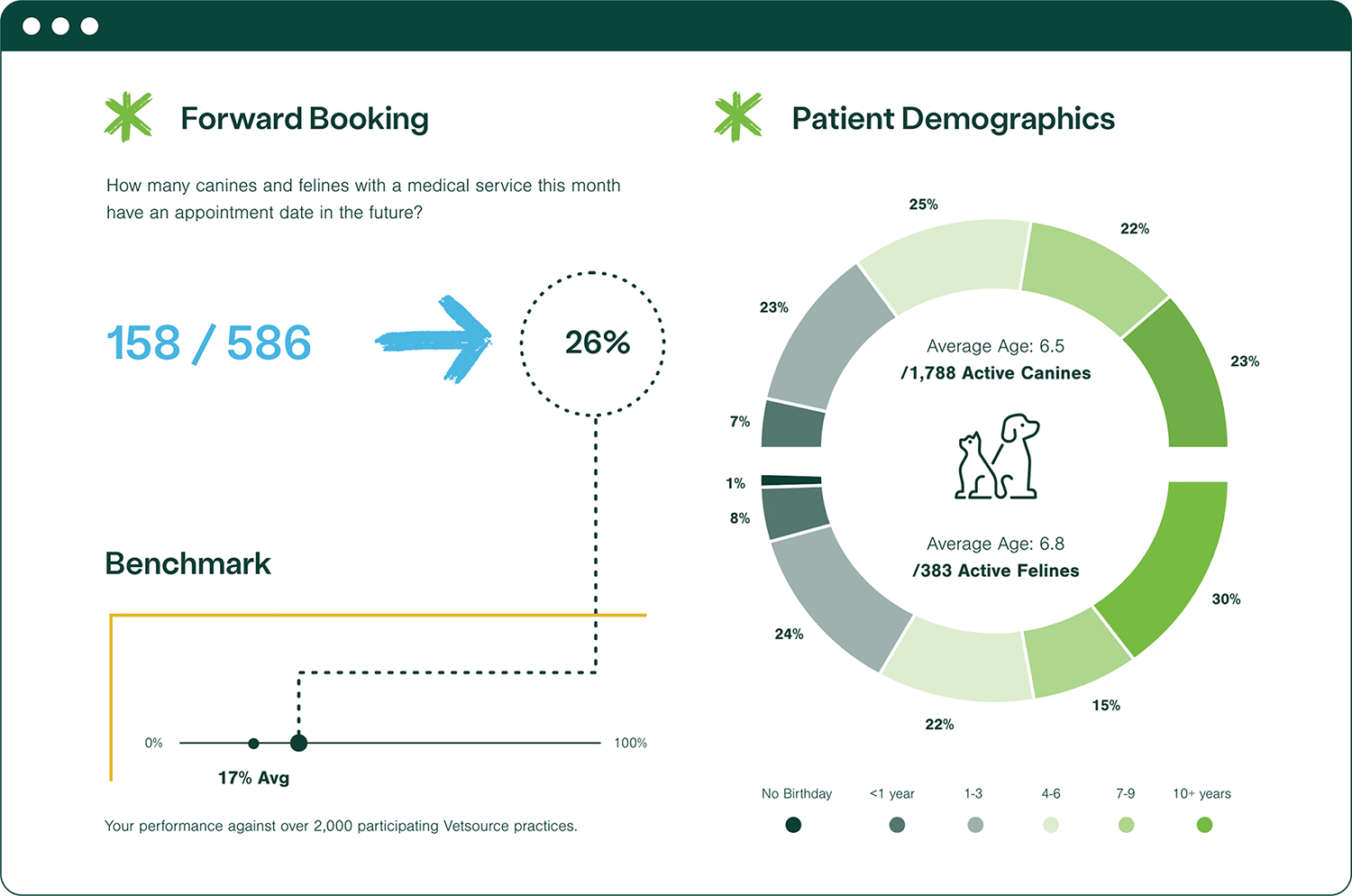When was the last time you left your dentist’s office without an appointment for your next visit? In other medical professions like dentistry and optometry, forward booking is widely practiced and well-received by both medical professionals and their patients. Veterinary practices that adopt this concept have considerably lower lapsed patient rates and better control over their schedule.
What is forward booking?
Forward booking is the practice of scheduling an appointment for a patient before they leave their current appointment. A forward-booked appointment could be 3 weeks from now, 6 months from now, or even 1 year from now. When a patient is forward booked, you’re reserving space for their next visit, making it easy for them to return without having to remember to call you to schedule their next appointment.
 How do you know if you’re succeeding?
How do you know if you’re succeeding?
Traditionally it has been next to impossible to determine how well a veterinary practice team is doing when it comes to forward booking. Vetsource solves this problem by showing practices their forward-booking rate through the Practice Overview Report.
Each month, the forward-booking rate is calculated based on the number of patients who were seen that month and have an upcoming appointment. It shows the percentage of forward-booked clients, and it benchmarks that performance against over 2,000 Vetsource practices. It also shows the breakdown of dogs vs. cats and pet age.
Practice success
Park West Veterinary Associates in Mt. Pleasant, South Carolina, embraced forward booking around 2010. After realizing their personal dentists and optometrists managed to forward book without a problem, practice manager Marian Rowland, CVPM, discussed the topic with her team.
At Park West, the team takes the approach of “what’s good for the pet is good for the practice; what’s good for the practice is good for the staff.” When discussing change, they always measure their intentions against the good of the patient, practice, and staff. Forward booking became a no-brainer, as they realized that bringing pets back meant the best patient care.
Rather than make a big deal out of forward booking, Marian says the team proactively lays out a plan for every patient. They let clients know when they need to see their pet again and that they’ll take care of scheduling. Instead of writing out an appointment card, they simply say “Nice to see you! We’ll see you in ______ weeks/months/next year.” Then they follow a simple rule: same doctor, same day of the week, same time. This ensures they schedule an appointment that is most convenient for the client. They use their practice management software program to set up appointment reminders that begin approximately one month ahead of the scheduled appointment, which Marian says “has been extremely helpful in making our pre-appointing work well for the team and our clients.”
In March 2017, the average forward booking rate for more than 1,000 veterinary practices was 12% — Park West’s was 65%! Marian credits her team’s success with always starting with “why” — why the veterinarian needs to see the pet again as part of the patient’s preventive and ongoing healthcare plan. “Our clients appreciate that we take care of their appointments, and they don’t have to remember to call us to schedule their pet’s care,” she shares.
It’s okay to be forward
Forward booking improves patient health and wellness by assuring pets in your care come back when they need to be seen again. With Park West’s approach, there’s no pushback or conflict — clients welcome the ease of forward booking. Sign up for the Practice Overview Report, follow the rule of “same doctor, same day, same time,” and see the results for yourself!



